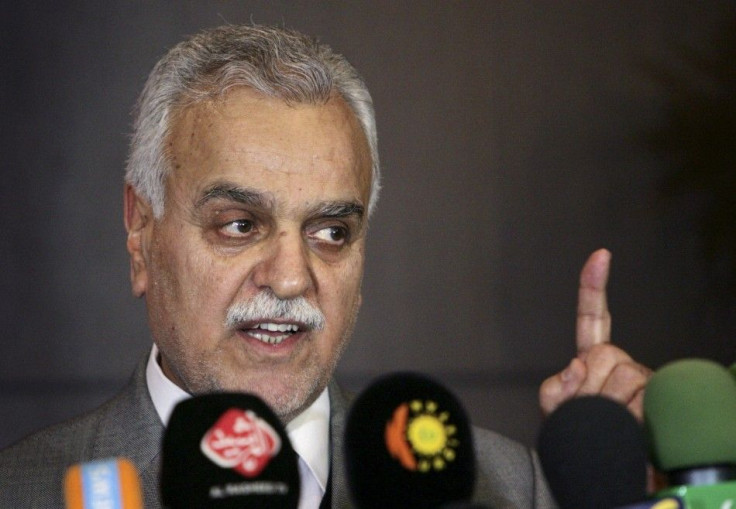Iraq's Sunni Vice President Hashemi Sentenced To Death By Shia Government

Tareq al-Hashemi, the fugitive vice president of Iraq, was found guilty of murder and sentenced to death on Sunday. Though Hashemi is in Turkey and unlikely to return to Iraq as long as the charges against him stand, the ruling is expected to fuel even more unrest in a country that is already deeply divided and plagued by widespread violence.
Hashemi, a Sunni Muslim, is accused of running death squads that targeted Shias. The charge was brought by the majority-Shia government, which is led by Prime Minister Nouri al-Maliki.
Hashemi, a member of the Sunni-majority Iraqiya Party, dismisses the accusations against him as politically motivated. He was the highest-ranking Sunni member of the Iraqi government, which has been mired in political deadlock for months.
The government issued a warrant for Hashemi's arrest in December of last year, even though the United States had urged the new administration to work toward political and religious reconciliation. The warrant was issued the day after the last U.S. troops left the country.
Many supporters of Hashemi have accused Maliki of refusing to share power with political opponents, sparking fears that his rule will begin to resemble that of deposed dictator Saddam Hussein.
Hussein, of the Sunni-led Ba'ath Party, was a repressive ruler over the majority Shia population, minority Kurds and other political dissenters during his 24-year reign. Following the U.S. invasion of Iraq in 2003 and the subsequent ouster of Hussein, a new Shia-majority government was installed.
But sectarian violence and religious conflicts still thwart stability in Iraq today. Many Shia Muslims seek retaliation against Sunnis after decades of minority rule, while violent insurgent attacks are often perpetrated by Sunni militants against the Shia establishment.
Several such attacks took place on Sunday across Iraq, with at least 58 people losing their lives. An Iraqi wing of al-Qaeda called the Islamic State of Iraq has claimed responsibility for some of them.
Coordinated attacks like these now occur about once every month.
© Copyright IBTimes 2024. All rights reserved.












